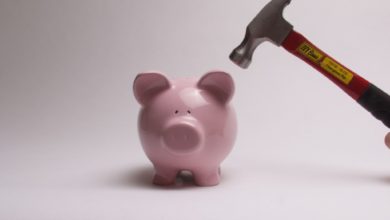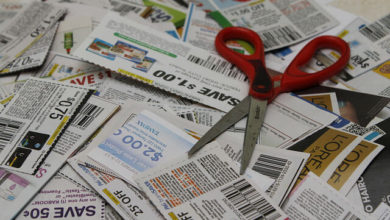5 Unethical Ways to Make Money

We are not afraid to admit that there are thousands of ways to make money on the side that can help you with your budgeting and getting out of debt. But we are also not afraid to admit that a number of these money-making schemes are not on the up-and-up.
While there are some very legitimate ways to make money (delivering pizzas or newspapers, doing some freelance work online, starting a small business), there are some that are illegal (prostitution, selling drugs, robbing banks), and there are those which kind of toe the line between legit and not-so-much.
We all know that just because some scheme is legal doesn’t always mean it’s right. Working a business and making money can and should have an ethical and moral component to it. But there are times when the love of money overrules ethics, morality and common decency. Even if legally the person can get away with it.
This is why we always say if something seems too good to be true, you should always ask questions and do research before getting involved in something that might be a little loose with ethics if not the law.
Now, to be clear, while we advocate finding ways to make extra money to help get your financial house in order, we are not writing about unethical money-makers as an encouragement to you. This is more for educational and informational purposes that there are some unethical things out there, and you should be aware of these so you can decide for yourself if doing something similar will work for you or not. If you have ethics, then you will pass and not get involved in anything like these. However, are any of these things truly wrong, in your view?
1. Domain Market
There are literally trillions of website domain names out there, many of which have yet to be bought. A couple of schemes in this area involve buying up similar domains as popular brands (or perhaps trending brands that haven’t caught fire yet), holding them and selling them either to the company or someone else for a profit.
A major brand tries to buy as many related domain names as possible, and if you get in first with the brand name, the actor’s name, or maybe the title of a blockbuster movie, you may get a letter from an attorney representing that entity, and there may be an offer on the table for your domain name, which you might have paid $10 or $20 a year to hold but make multiples of that at the end of the day.
You can also look up some popular misspellings of major website addresses and build a domain name there. There were a couple of old porn sites that took advantage of misspellings of “espn.com,” for example.
You could make money by generating a lot of traffic through these misspellings (or even mistypings, such as when a “dot” is left out of an address or there is an extra letter or number in the intended domain) and you can either create a page with a bunch of ads on it – relevant or not to the intended domain – or you can create a page with tips or advice related to the subject matter of the domain.
For example, if you have a site related to purchasing a car, such as a misspelling of “Chevrolet” or “AutoNation,” you could provide advice about negotiating a good car deal or knowing which optional features should be standard for your car, or how to pick the right insurance policy for your new purchase.
2. The Life Settlement
Now, there are a couple legitimate companies in this area, but this is a growing industry that is becoming riddled with unethical actors. This scheme involves buying a person’s life insurance policy for the cash value or less. The buyer then continues to pay the premiums, and then collects on the insurance policy when the seller dies.
On the one hand, this is capitalism. There is a product being sold, and there is a market for those products. But what makes it a tad unethical is the fact that usually a person will only sell the life insurance policy because he or she can’t afford the premiums anymore, or he or she gets cash-strapped and would rather use the cash value from the policy. Ethics don’t usually put you in a position to take advantage of someone in desperation.
3. Payday Loans
I am not referring to the actual payday loan industry, which is legitimized loan-sharking (though several states have outlawed it or great regulated its terms). What I am referring to is similar in nature except it’s done with you as the lender.
For example, let’s say you have a friend who has a very important job interview, but asks to borrow $100 from you to buy a new suit for the interview. You agree to loan him the money, and you charge him $4 interest every week. You are charging a 208 percent annualized interest rate, which is payday-loan-esque. However, if your friend gets the job and is making decent money, he won’t complain about paying you back $132 after two months.
4. Amazon.com Reviews
Amazon.com is a very large online marketplace, which offers many different items in the same subject area. Oftentimes, consumers rely on the customer reviews for each product to decide which one to buy.
And it turns out many product sellers who use the Amazon.com Marketplace to sell their wares also rely on reviews to get consumers to buy their products. So the sellers (or an agency they hire) will pay people money to write fake Amazon.com reviews and post them on the site.
There are freelancer websites out there where people will promote jobs writing product reviews on Amazon.com, paying people a couple dollars apiece to write 100-200 words promoting a product, and there might be 100 or more products to be written about. Even if you won’t buy them or use them yourself. It is estimated that one-third of all product reviews are fake. You can make some money writing these reviews, and if the seller gets better sales from your work, he or she may hire you back again to do more.
5. Emergency Relief
Now this scheme can be illegal, but there are ways to toe the line and “only” be unethical. Let’s say you had a major weather event and you are cleaning up. You sometimes cut tree branches as a freelance landscaper around town, and you are being asked to “pitch in” and help with the cleanup around the neighborhood. Though you normally charge $25 per hour to cut branches from trees, because of the “emergency” situation, you charge your neighbors $50 per hour for the work.
Again, this isn’t anything inherently illegal, since the weather event has created a very high demand for the service you provide, and you have a limited amount of time in order to meet everyone’s needs. However, you can admit that it’s a little unethical to take advantage of a crisis or emergency situation to justify a rate increase.
Think long-term and don’t unethical
In the end, there are ways to make extra money that are legal but toe the line when it comes to ethics. And since each of us has his or her own moral code, it is up to you to ultimately decide on what you consider to be ethical or not.
But we all can agree that there are some shady ways to make a quick buck. Unfortunately many times, these options for making money dry up fast and we are left with needing to find new ways to bring in some money. If you want to increase the chances that you can bring in extra money for the long term, look for a legal way to make money that doesn’t toe the line ethically.
Jon Dulin blogs at Penny Thots, a personal finance blog that helps readers improve their finances one day at a time.





Working in the life insurance industry, I have seen a few questionable practices. Our office only contacts people that have expressed an interest and have requested a quote. Taking advantage of people who do not understand what they are purchasing, will not do you your reputation any good.
I agree, think of the long run. Do what is right. You will sleep better at night.
There are really some people who more than take advantage of what is asked from them. Like that example in emergency relief, people are in dire need of help, why give your service free of charge.
Ugh, I hate fake Amazon reviews. A nice little trick to see if reviews are legit are to click on the reviewers page and see what other things they are reviewing. I was looking at a piece of luggage and noticed that all of the reviewers were reviewing a bunch of different luggage sets. So fake!